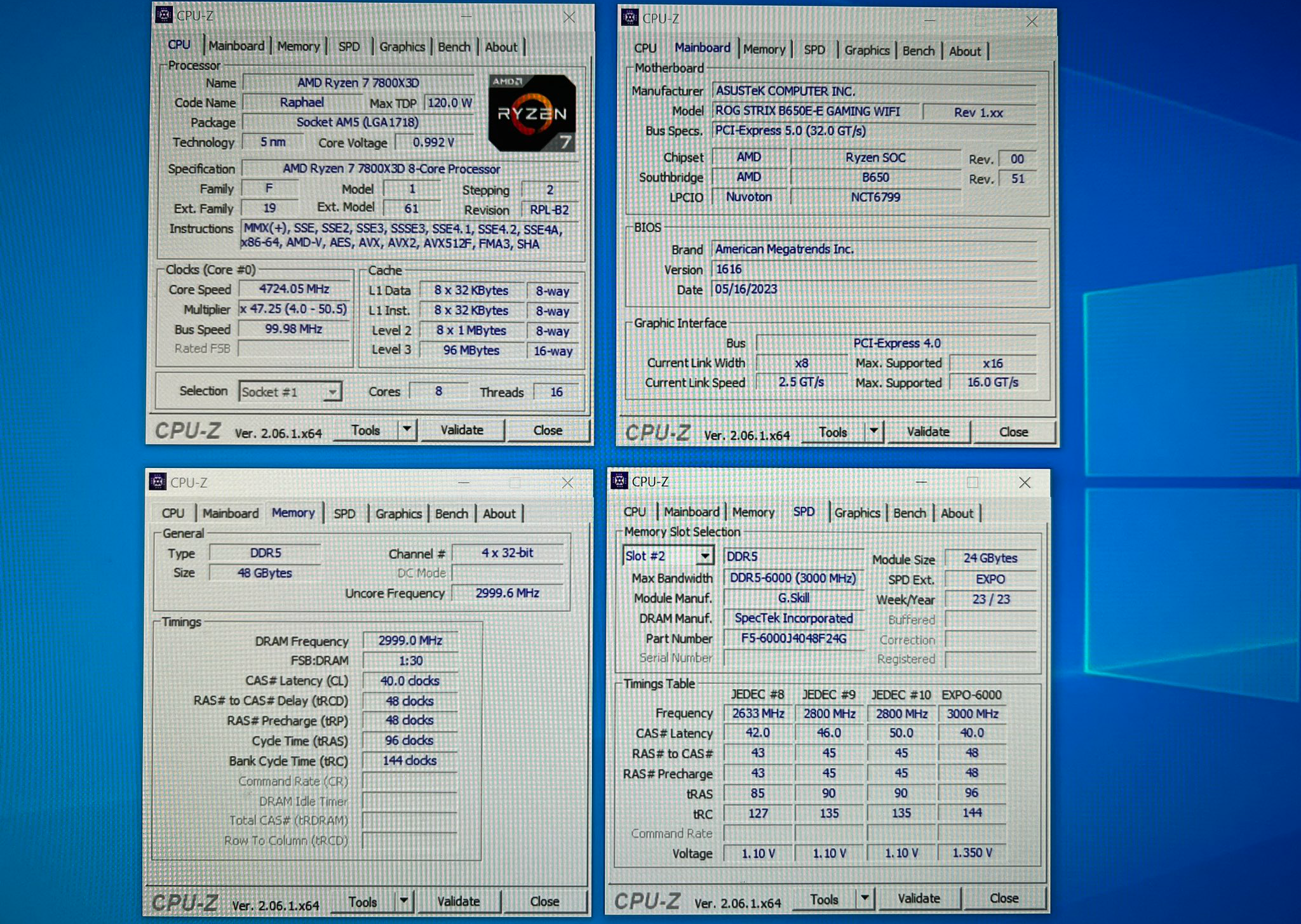G.Skill Allegedly Preps Non-Binary 24GB DDR5-6000 AMD EXPO Modules
Hardware leaker shows G.Skill's 24GB memory modules with AMD EXPO support
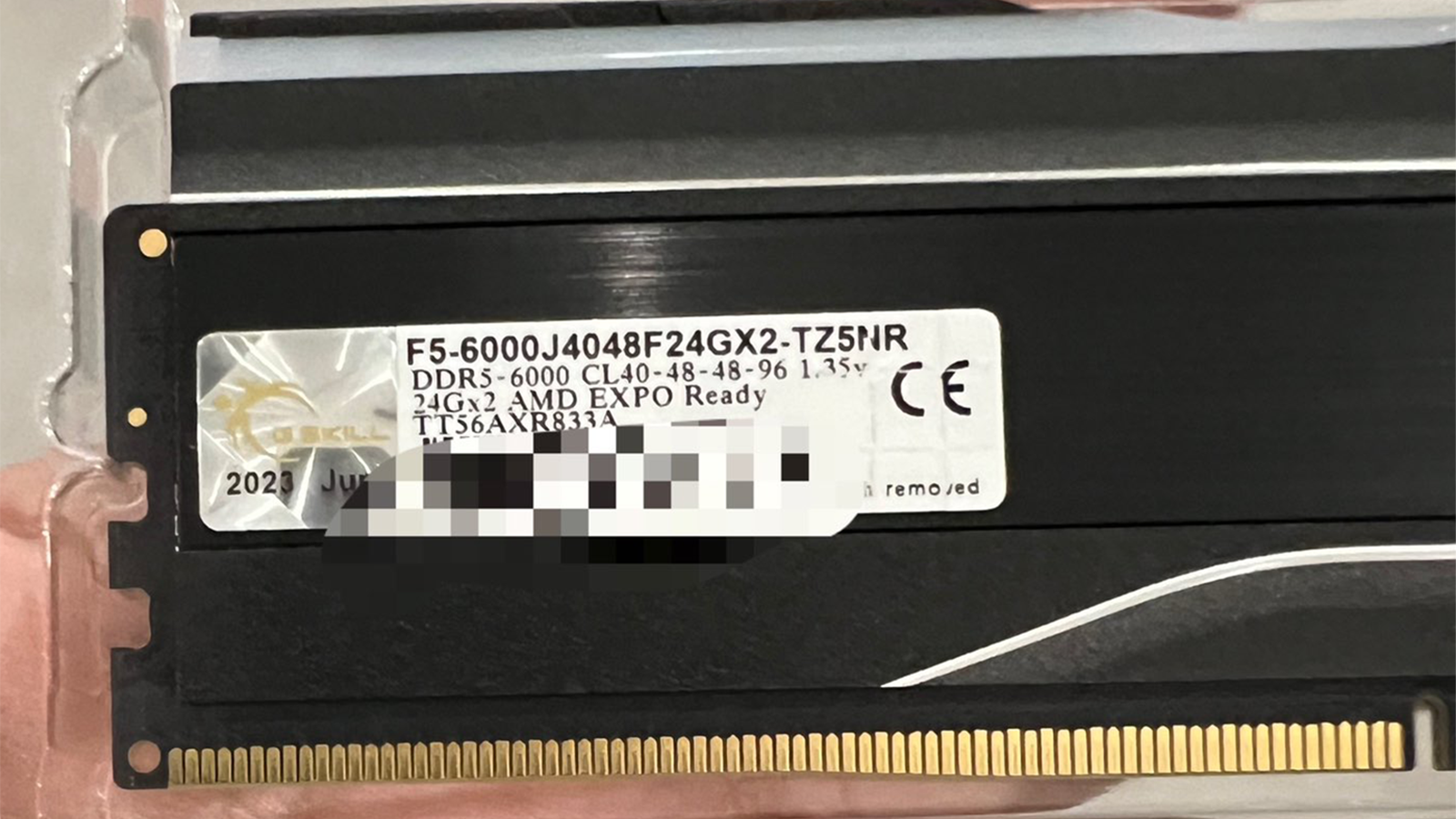
G.Skill is working on non-binary 24GB DDR5 memory modules with EXPO profiles for AMD's Ryzen 7000-series processors, according to pictures of these DIMMs published by renowned hardware leaker MEGAsizeGPU. These Trident Z5 modules will be rated for a 6000 MT/s data transfer rate, a sweet spot for AMD's AM5 CPUs.
G.Skill's 24GB Trident Z5 modules currently tested by various parties are rated for DDR5-6000 operation with CL40 48-48-96 latency settings at 1.35V. The modules will feature AMD EXPO profiles that simplify their settings on AMD AM5 systems. In addition, this means that they are thoroughly tested and fully compatible with AMD's Ryzen 7000-series processors based on the Zen 4 microarchitecture.
Based on images published by @Zed_Wang, G.Skill's 24GB Trident Z modules (F5-6000J4048F24GX2-TZ5NR) can work and boot Windows in DDR5-6000 mode. Meanwhile, CPU-Z identifies the DRAM maker as SpecTek, a Micron subsidiary, so it looks like the memory sticks use 24Gb chips from Micron.
The modules are shipped in pairs, so it is more than reasonable to assume they will be commercially available in matched 48GB dual-channel kits. While we do not know their pricing, we are sure that they will sit between 32GB and 64GB kits and be priced accordingly.
When memory module makers started to ship their DDR5 DIMMs based on 24Gb DRAM ICs several months ago, those modules featured Intel's XMP profiles and worked fine on Intel-based machines. Meanwhile, motherboard makers had to ensure their proper support on AMD Ryzen 7000-based systems.
So far, no memory module maker has offered non-binary modules (e.g., 24GB, 48GB, 96GB) with AMD EXPO support, so G.Skill will likely be the first company to do so.
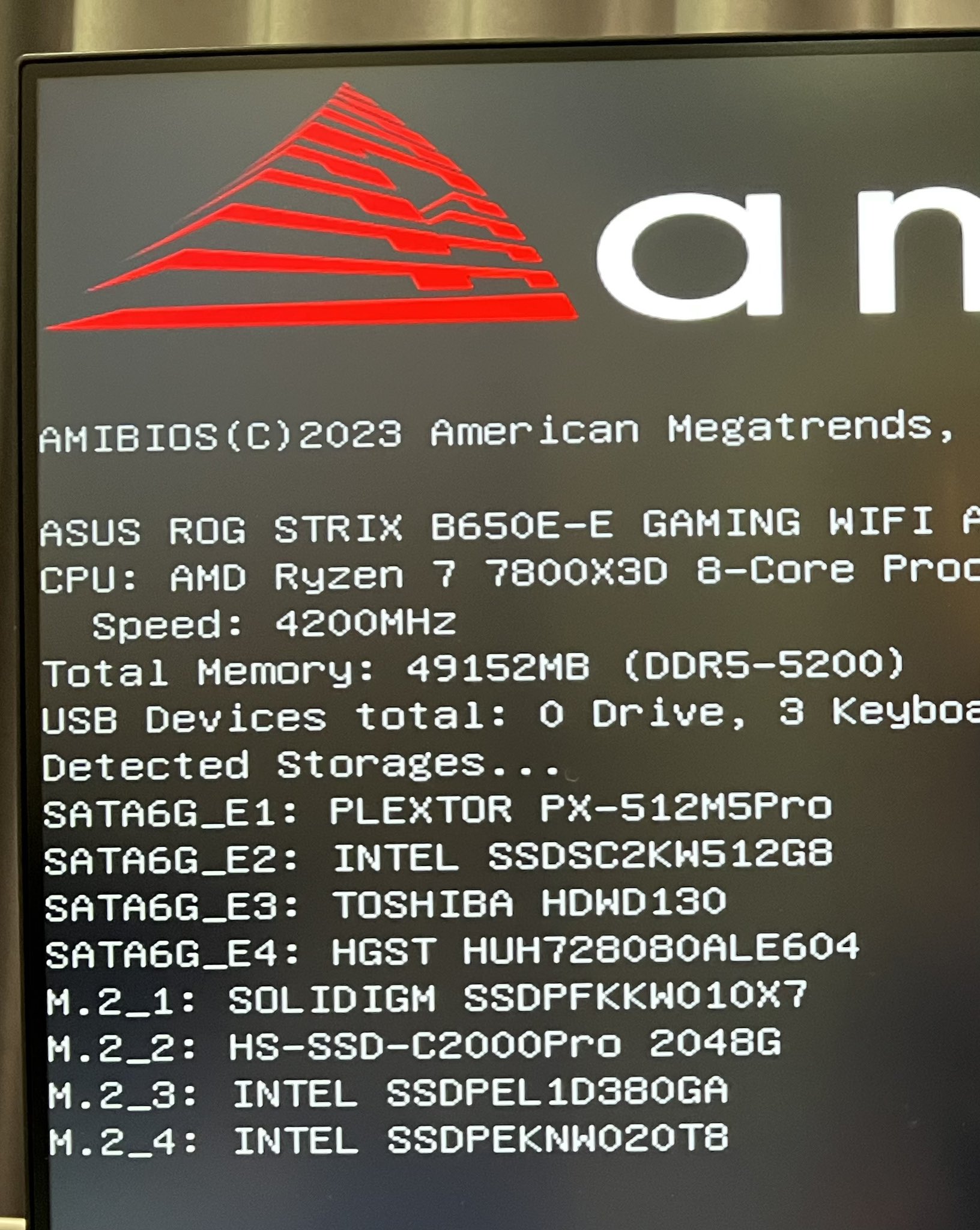
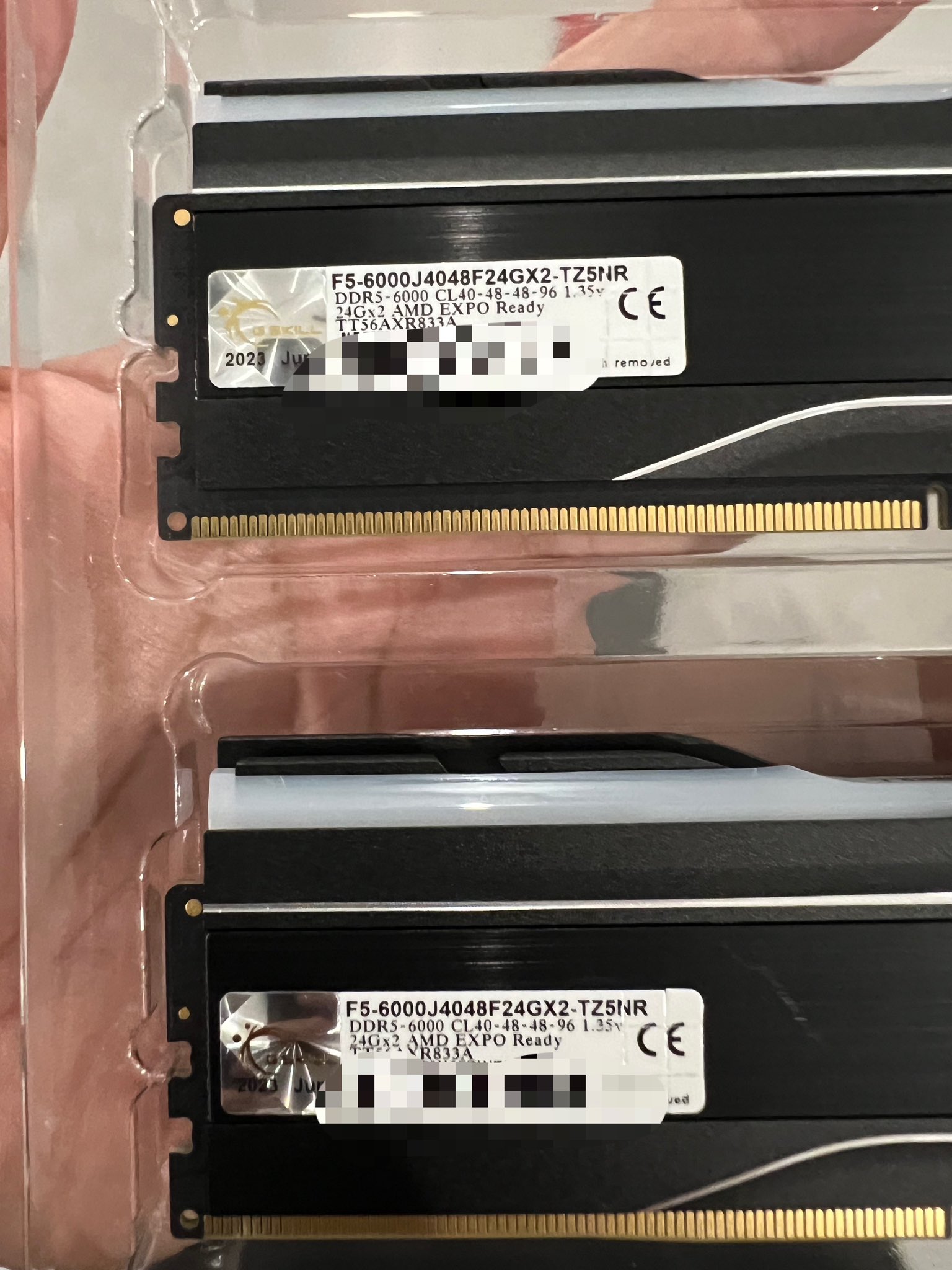
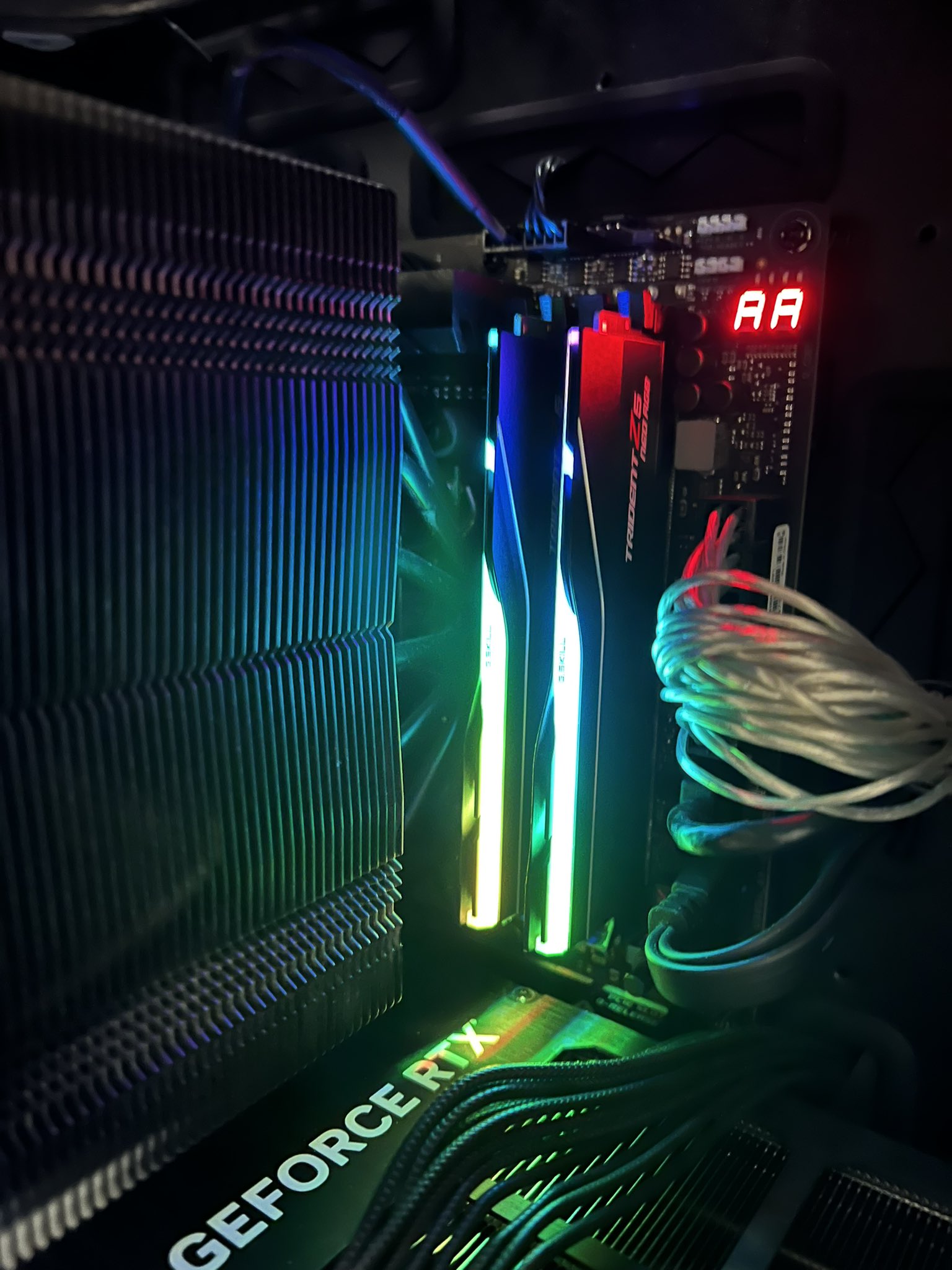
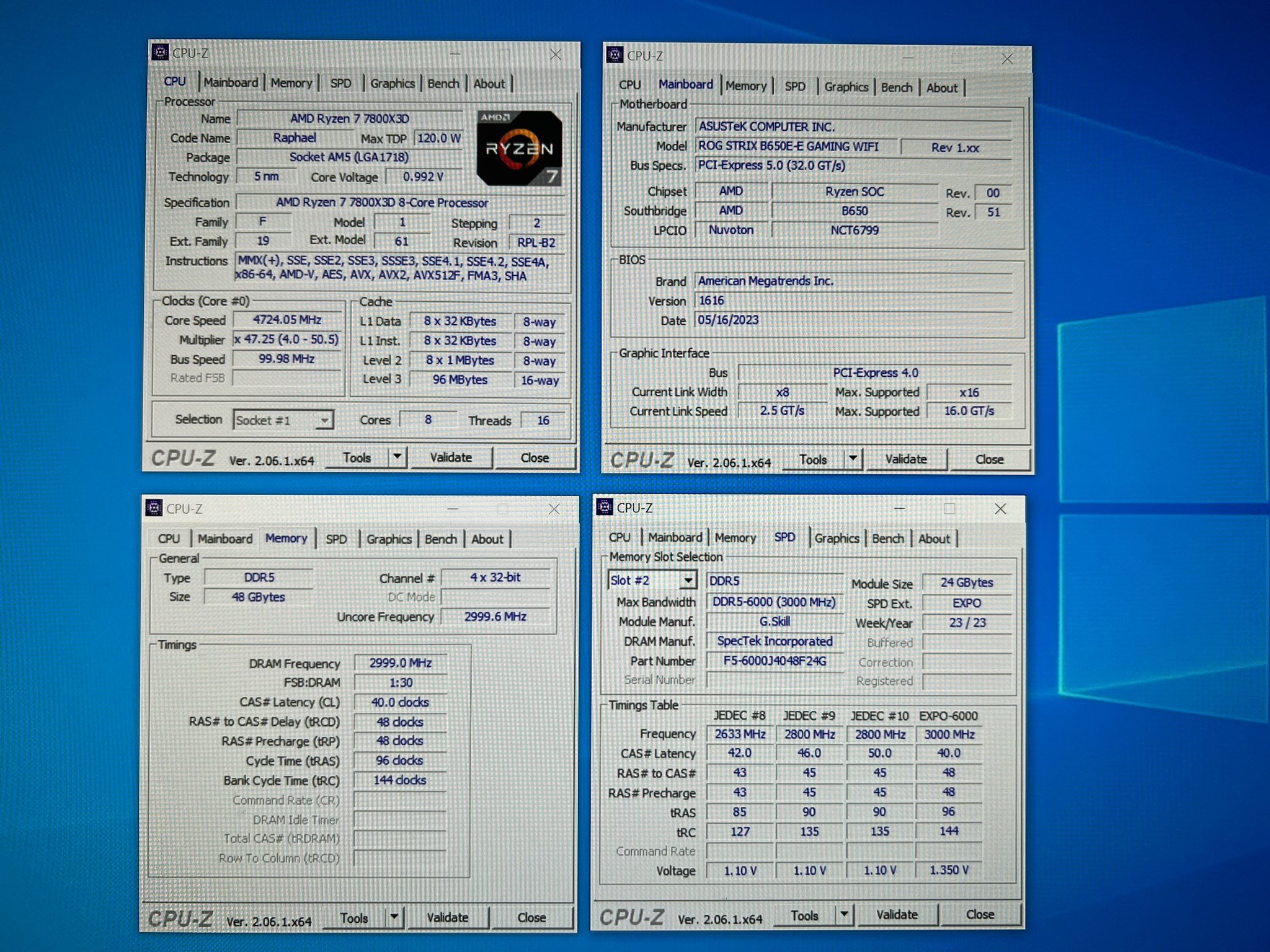
Get Tom's Hardware's best news and in-depth reviews, straight to your inbox.

Anton Shilov is a contributing writer at Tom’s Hardware. Over the past couple of decades, he has covered everything from CPUs and GPUs to supercomputers and from modern process technologies and latest fab tools to high-tech industry trends.
-
Friesiansam Reply
It appears to just mean different sized memory chips, so you can have 12 or 24 GB modules.gg83 said:What is the benefit of non-binary dram? What does it even mean? -
hotaru.hino Reply
"Non-binary" means the capacity isn't a power of 2, i.e., 1, 2, 4, 8, 16, 32, etc. Looking at a parts supplier, apparently the individual RAM chips do come in 24/48/96 Gbit flavors.gg83 said:What is the benefit of non-binary dram? What does it even mean? -
IamNotChatGpt Reply
Great that they put it at the absolute end of the article. Failed to mention why manufacturer don't produce non-binary modules.Friesiansam said:It appears to just mean different sized memory chips, so you can have 12 or 24 GB modules.
At first I thought G-Skill somehow uses hexadecimal or something crazy/weird.
Does TMHW not have a chief editor? o_O -
Math Geek it is kind of odd simply because we're so used to multiple of 2. i do wonder myself if there is some kind of manufacturing reason to do it. maybe the layering does not lend itself to multiples of 2 so it goes with a different multiple???Reply -
hotaru.hino There's no real reason why manufacturers need to make memory modules in powers of 2. It may simply be for cost reasons or there's some other application for it that doesn't allow for as much memory density.Reply
I noticed a lot of the 24/48/96 Gbit memory chips at a supplier were for automotive applications, suggesting they're made to different tolerances in some way. -
wifiburger would 24gb x 2 be eaiser to drive vs 32gb x 2 or it doesn't make much difference to the IMC ?Reply
